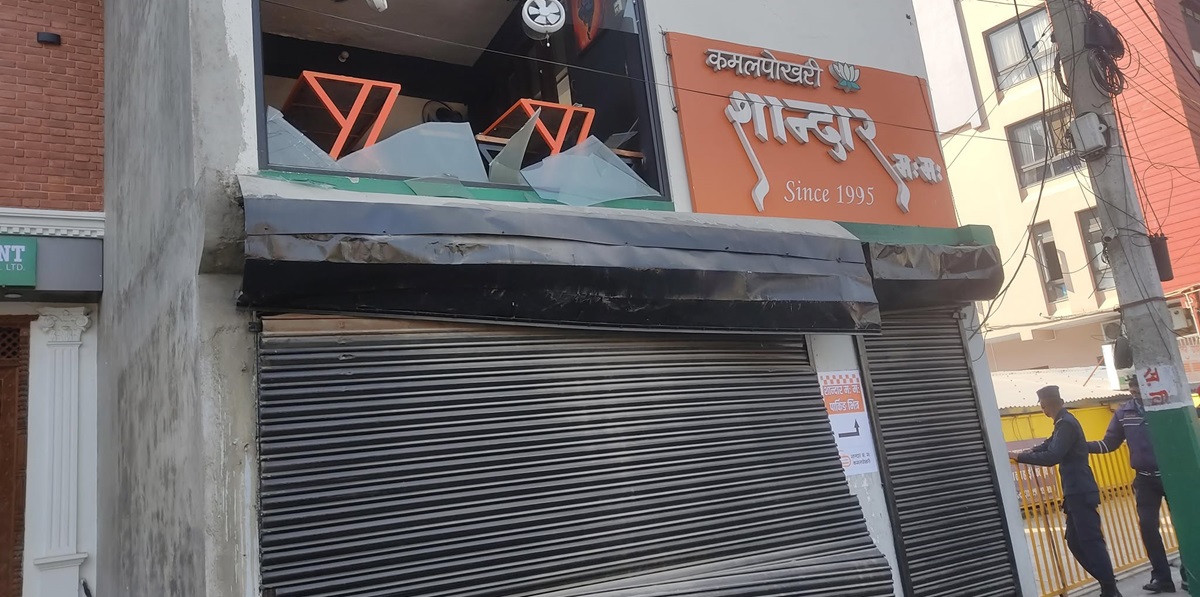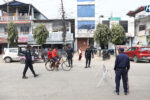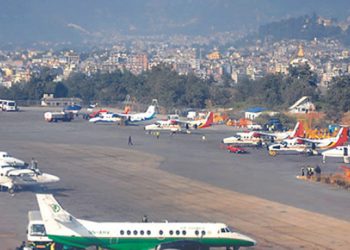KATHMANDU: The deaths of four young workers in the Shandar Mo:Mo gas explosion have sparked renewed concerns over labor rights and workplace safety in Nepal.
As survivors continue to fight for their lives in Kirtipur Hospital, the incident raises a pressing question: Why are workers still allowed to work without insurance?
The explosion, which occurred on February 6 at the popular eatery in Kamalpokhari, left eleven workers severely injured, many with critical burns. Among them, four young men — 18-year-old Rabin Rai, 22-two-year-old Pradeep Tamang, 25-year-old Bhim Bahadur Ghale, and 25-year-old Tshiring Lama—succumbed to their injuries despite receiving treatment at Kirtipur Hospital.
The remaining seven injured workers, including 18-year-old Manish Pokharel, 19-year-old Yash Kumar Ghale Magar, and 19-year-old Tirtha Magar, remain hospitalized, with two still in intensive care due to respiratory complications caused by the severe burns.
The explosion was caused by a gas leak in the restaurant’s kitchen, an accident that could have been prevented with better safety protocols. In the wake of the tragedy, concerns have surfaced about the lack of worker protections in Nepal, particularly regarding mandatory insurance and safety regulations.
Despite the hazardous nature of their jobs, many workers in Nepal’s informal and service sectors remain uninsured, leaving them vulnerable to financial and medical crises in the event of workplace accidents.
Social activist Ujjwal Bikram Thapa, who has been assisting the injured workers, noted that this incident highlights a significant gap in Nepal’s labor protections. According to him, none of the injured workers were insured, meaning that the burden of medical expenses has fallen entirely on the employer and the workers’ families.
While the owner of Shandar Mo:Mo has been covering treatment costs so far, Thapa pointed out that this approach is neither systematic nor sustainable.
“It is unfortunate that in this country, workers are still unprotected. When an accident happens, they are left to suffer alone. No one talks about insurance until a tragedy occurs,” he said.
Nepal’s labor laws require certain industries to provide accident and health insurance for workers, but enforcement is weak, and many businesses fail to comply. The informal nature of employment in the restaurant and hospitality sector makes it even more challenging to regulate.
Most restaurant workers are hired without formal contracts, leaving them without legal protections or access to benefits such as insurance, paid leave, or workplace compensation. Thapa expressed frustration that no trade unions or worker rights organizations have spoken out following this incident.
“Where are the voices that claim to protect labor rights? Why is there silence when the lives of young workers are lost?” he questioned.
The lack of a structured compensation mechanism means that the families of the deceased workers are now left in financial distress. Many of them had moved to Kathmandu from rural areas in search of better opportunities. For them, the death of a family member not only brings emotional devastation but also economic hardship. Without any form of social security or insurance payout, they are left to struggle on their own.
This is not the first time Nepal has witnessed a deadly workplace accident due to poor safety measures. Just days before the Shandar Mo:Mo explosion, a gas leak in Bhaktapur injured two women. In recent years, incidents of gas explosions, industrial accidents, and fire-related disasters have become alarmingly frequent. Yet, discussions on workplace safety remain minimal, and businesses continue to operate without taking adequate precautions.
One of the most glaring gaps in Nepal’s infrastructure is the lack of specialized burn hospitals outside Kathmandu. Despite Pokhara and Bhairahawa having international airports, neither city has a dedicated burn treatment center. In cases of severe burns, immediate medical attention is crucial, yet most victims must be transported to Kathmandu for treatment, often losing critical time in the process.
Thapa criticized the government for its failure to prioritize burn treatment facilities.
“The lack of burn hospitals in Pokhara and Bhairahawa, cities with international airports, is a serious shortcoming. It is not enough to just buy fire trucks for airports; we also need hospitals that can handle burn injuries,” he said. He added that while this issue has been discussed in policy circles, no concrete action has been taken to establish such facilities outside the capital.
Beyond the immediate medical concerns, the Shandar Mo:Mo explosion has sparked a debate about the broader state of workplace safety in Nepal.
Restaurants, factories, and construction sites across the country continue to operate with minimal safety measures, and workers are often forced to work in hazardous conditions without any form of protection. In many cases, safety regulations exist only on paper, with little to no enforcement from authorities.
Nepal’s labor laws mandate workplace safety provisions, but implementation remains weak due to limited government oversight and corruption. Many businesses cut corners to save costs, ignoring essential safety measures such as proper ventilation, fire extinguishers, and regular maintenance of gas cylinders. The situation is even worse for workers in informal sectors, who often lack the bargaining power to demand better conditions.
In the aftermath of the explosion, questions have also been raised about the government’s role in regulating workplace safety. So far, there has been no official statement from the Ministry of Labor or other concerned authorities regarding potential investigations or policy reforms following this incident. While local government officials have acknowledged the severity of the accident, there has been no commitment to enforcing stricter regulations to prevent similar tragedies in the future.
The deaths at Shandar Mo:Mo serve as a wake-up call for Nepal to take urgent action on worker safety and insurance. Thapa says if meaningful reforms are not introduced, such preventable tragedies will continue to claim the lives of Nepal’s most vulnerable workers. There is an immediate need for mandatory insurance coverage for all workers in high-risk sectors, stricter workplace safety enforcement, emergency preparedness training for businesses, and investment in burn hospitals beyond Kathmandu.
Thapa believes that unless such measures are implemented, tragedies like this will continue to repeat. “Every time a disaster happens, there is outrage for a few days, but then it fades away without any real change. How many more young workers must die before the system takes their lives seriously?” he asked.
For now, the families of the deceased workers are left mourning their loss, and the injured continue to battle for survival. But the broader question remains: Will this incident lead to real change, or will it be forgotten like so many others?









Comment